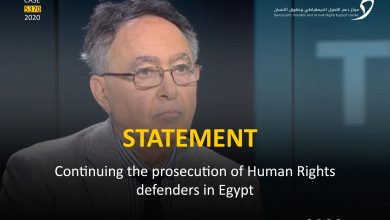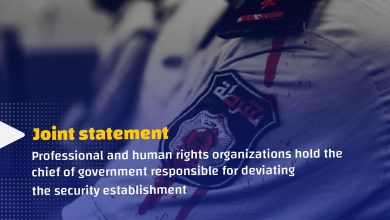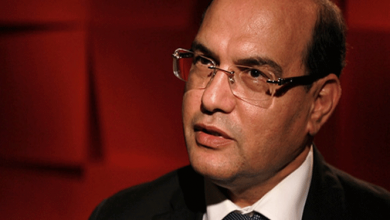An interview with “Manel Ben Achour” program coordinator at I Watch Organization

I Watch Organization is considered to be one of the most important Tunisian organizations that are working on the issues of combating corruption and good governance, it is an oversight independent non-profit Tunisian organization that aims to combat financial and administrative corruption and enhance transparency. I Watch became the official contact organization for Transparency International in Tunisia in November 2013. And since 29 January 2017, I Watch is considered to be on the drawing board branch for Transparency International, I Watch also was awarded the Amalia award for transparency on 15 October 2015, the award which is annually supervised by Transparency International.
And for the importance of its activities and supporting projects, DAAM center considered it necessary to conduct an interview with one of its members to know their point of view on this subject and all it aspects, especially in the context of the war on corruption declared the Prime Minister as a representative of the Tunisian regime, and here is the full interview conducted with the project coordinator of the organization “Manel Ben Achour”.

In the beginning, we would like to know is taking care of the combating corruption issue optional for the government or is it a necessity imposed by international donors as a condition to continue providing aid for them? Or is it a societal will that emerged during the revolution through the parties and civil society’s demands of the parties?
Combating corruption is a trend that emerged recently in 2016, and it is used by the government only as a tool, as we have never seen a real combat on corruption, as normally this combat should be into figures in reality, and we have never seen that actually, for example, the Corruption Perceptions Index does not witness any improvement in Tunisia’s ranking compared to what we hear daily from the government about its war on corruption and combating corrupts and even despite the laws that are issued on this subject, and thus, there is a selective war on corruption especially in issues as “Topec” and dismissing the Minister of Energy and merging the ministry with the Ministry of Industry, it should be noted here that Issues related to energy are considered serious matters as they are technical matters related to natural resources. The entire ministry was dismissed as consequence for the investors’ reluctance to invest and the declining levels of the Tunisian Dinar, and this dismissal is a negative message to the world as after this decision the whole ministry was merged to the Ministry of Industry and the least to be said here is that the Minister of industry is not familiar with the Energy sector’s issues. This cabinet reshuffle didn’t witness assigning a new minister of energy. According to what I see, the war on corruption comes within the framework of settling scores as if it is a card that is used when there is are external threats or internal riots,
All the successive governments since the revolution considered combating corruption a priority; however, they did not achieve any real advancement in combating smuggling, money laundry and organized crime, and in 2018 Tunisia was ranked the 74th out of 180 countries included in the Corruption Perceptions Index, which reflected a one rank advancement compared to the 2016 Index, according to your opinion Who is responsible for this situation?
Who is responsible for this situation is prioritizing political interests, ambitions and greed at the expense of combating corruption and citizens. After going through several electoral phases, all politicians cared only about attracting a popular support through false promises and that would not be actually applied, but these negative aspects do not prevent us from noting some other positive steps as issuing the law of protecting whistleblowers even if it is not activated as it should be, as the National Authority for Combating Corruption is unable to protect them. And we should not also forget that we now have a Law on Access of Information which is an important gain, and finally, there is also the “Law on Authorization of Property and Interests”, although, in my opinion, the Authorization of interests law in its current state is comprehensive and general, as it includes 350,000 employees and the responsible Authority has limited resources and this requires several material, human and logistical resources, and in addition to that there is also the inclusion of an unclear category, such as association managers.
Do we consider the CEO as a manager according to this category? or only an advisory board member? Or does it refer to all workers? And also there should be a second phase where information get checked and verified, and if there is any wrong information submitted there should be consequences and punishments.
The law is good but its content can be obstructed because of the comprehensiveness of its scope and its lack of clarity regarding whether to adopt the old permits that were submitted in the Court of Audit or will the permits granted by the Authority will be the only ones to be accredited?
In the beginning, we would like to know is taking care of the combating corruption issue optional for the government or is it a necessity imposed by international donors as a condition to continue providing aid for them? Or is it a societal will that emerged during the revolution through the parties and civil society’s demands of the parties?
Combating corruption is a trend that emerged recently in 2016, and it is used by the government only as a tool, as we have never seen a real combat on corruption, as normally this combat should be into figures in reality, and we have never seen that actually, for example, the Corruption Perceptions Index does not witness any improvement in Tunisia’s ranking compared to what we hear daily from the government about its war on corruption and combating corrupts and even despite the laws that are issued on this subject, and thus, there is a selective war on corruption especially in issues as “Topec” and dismissing the Minister of Energy and merging the ministry with the Ministry of Industry, it should be noted here that Issues related to energy are considered serious matters as they are technical matters related to natural resources. The entire ministry was dismissed as consequence for the investors’ reluctance to invest and the declining levels of the Tunisian Dinar, and this dismissal is a negative message to the world as after this decision the whole ministry was merged to the Ministry of Industry and the least to be said here is that the Minister of industry is not familiar with the Energy sector’s issues. This cabinet reshuffle didn’t witness assigning a new minister of energy. According to what I see, the war on corruption comes within the framework of settling scores as if it is a card that is used when there is are external threats or internal riots,
All the successive governments since the revolution considered combating corruption a priority; however, they did not achieve any real advancement in combating smuggling, money laundry and organized crime, and in 2018 Tunisia was ranked the 74th out of 180 countries included in the Corruption Perceptions Index, which reflected a one rank advancement compared to the 2016 Index, according to your opinion Who is responsible for this situation?
Who is responsible for this situation is prioritizing political interests, ambitions and greed at the expense of combating corruption and citizens. After going through several electoral phases, all politicians cared only about attracting a popular support through false promises and that would not be actually applied, but these negative aspects do not prevent us from noting some other positive steps as issuing the law of protecting whistleblowers even if it is not activated as it should be, as the National Authority for Combating Corruption is unable to protect them. And we should not also forget that we now have a Law on Access of Information which is an important gain, and finally, there is also the “Law on Authorization of Property and Interests”, although, in my opinion, the Authorization of interests law in its current state is comprehensive and general, as it includes 350,000 employees and the responsible Authority has limited resources and this requires several material, human and logistical resources, and in addition to that there is also the inclusion of an unclear category, such as association managers.
Do we consider the CEO as a manager according to this category? or only an advisory board member? Or does it refer to all workers? And also there should be a second phase where information get checked and verified, and if there is any wrong information submitted there should be consequences and punishments.
The law is good but its content can be obstructed because of the comprehensiveness of its scope and its lack of clarity regarding whether to adopt the old permits that were submitted in the Court of Audit or will the permits granted by the Authority will be the only ones to be accredited?





